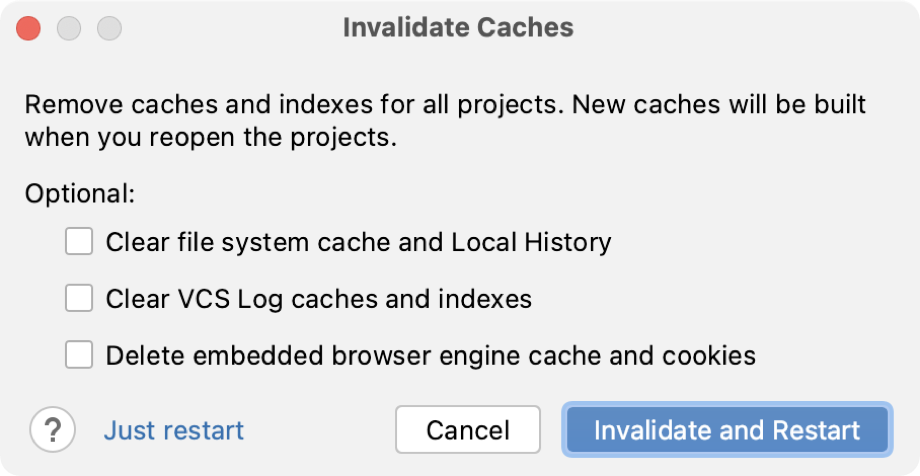Invalidate caches
DataGrip caches a great number of files for all databases that you have ever worked with in this IDE version, therefore the system cache may become overloaded. Sometimes the caches will never be needed again, for example, if you work with frequent short-term projects.
When you invalidate the cache, DataGrip removes the cache files for all databases ever run in the current version of the IDE. The files will be recreated the next time you open these projects.
Note the following before you proceed:
The caches will not be deleted until you restart DataGrip.
Opening and closing a project without invalidating the cache does not result in deleting any cached files.
Local History is not deleted when you invalidate the cache unless you explicitly enable this option in the Invalidate Caches dialog. However, mind that Local History has a retention period of 5 working days by default.
Clear the system cache
From the main menu, select .
In the Invalidate Caches dialog, you can select additional actions that the IDE will perform while removing the cache files:
Clear file system cache and Local History: remove the virtual file system cache together with the information stored in Local History.
This action might be helpful for troubleshooting purposes when the usual cache invalidation is not enough to solve the problem.
Clear VCS Log caches and indexes: remove the cache and indexes of the VCS Log.
Enable this option if you are certain that your VCS Log indexes are broken, for example, if the Log search doesn't work correctly.
Delete embedded browser engine cache and cookies: remove the cache files and cookies that are stored in the built-in JCEF browser.
These files rarely get broken. This option allows you to invalidate the cache while keeping JCEF cookies and caches intact.
Click Invalidate and Restart.

If you click Just restart, cache files won't be deleted, and the selected optional actions won't be applied.
For details on where various user-specific files are stored, see Directories used by the IDE.